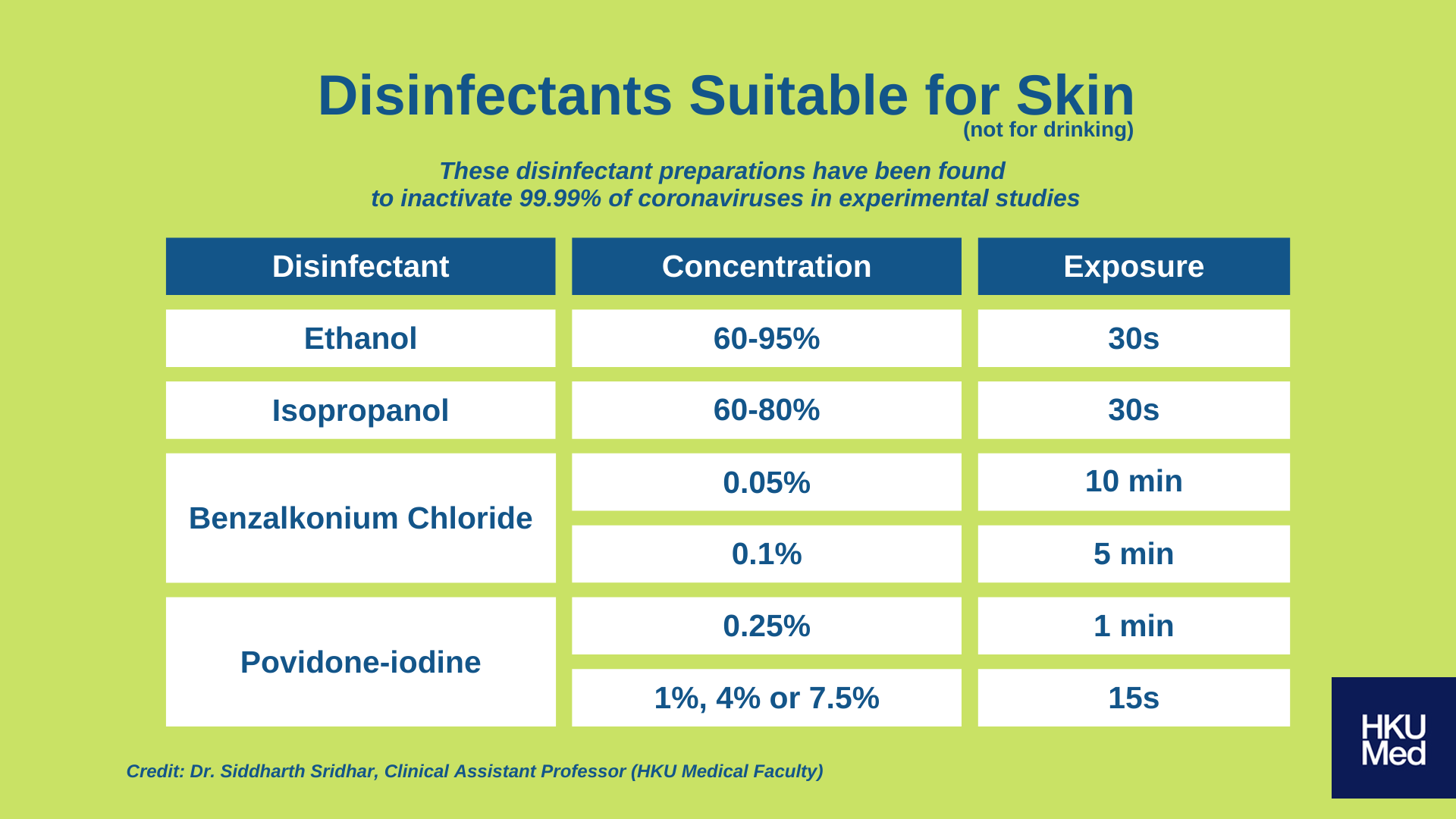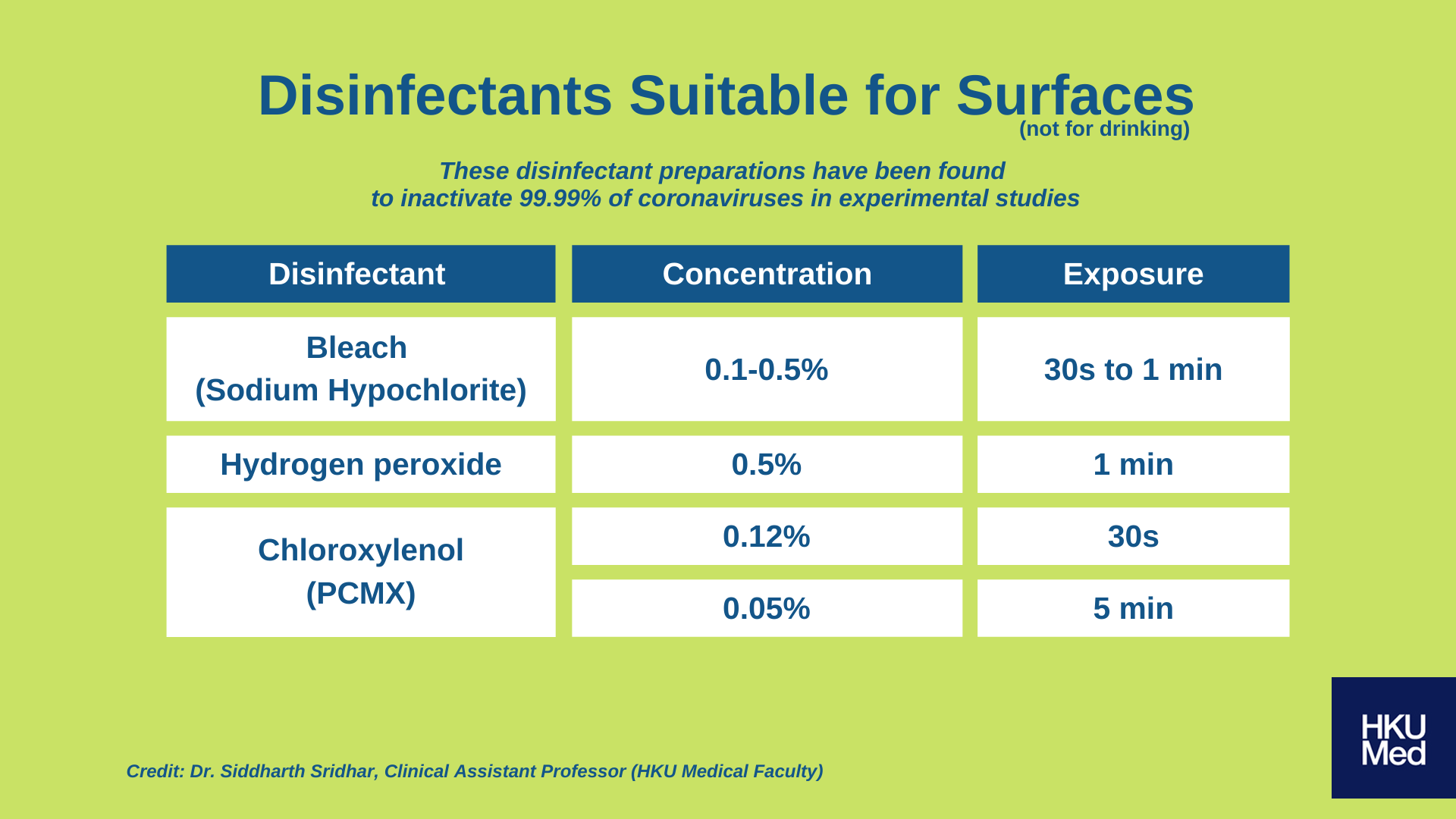To fight against coronaviruses, we must first learn how it is constructed.
Coronaviruses are covered by a lipid layer called an envelope. By disrupting the envelope, we can inactivate or “kill” the virus, preventing it from being infectious.
The good news is this envelope is fragile.
We spoke with Dr Siddharth Sridhar, Clinical Assistant Professor in the Department of Microbiology at the University of Hong Kong, and an expert in emerging infectious diseases, to share with us which disinfectants are effective against the coronavirus.
Important note: the following solutions are not for eating or drinking.
Which disinfectants are suitable for skin?
Experts are advising people to maintain good personal hygiene during this period, including washing your hands often, and keeping your hands away from your face.
However, not all disinfectants are suitable for the skin, as some may cause irritation or pain. Most disinfectants are diluted with other liquids for use.
The following shows a list of disinfectants, its concentration, and exposure time that are suitable for skin and have been shown to inactivate other coronaviruses by 99.99%:

Which disinfectants should we be using on surfaces?
In addition to maintaining good personal hygiene, it’s important to disinfect your personal belongings as well as personal items.
The following disinfectants with the following compositions can be used to clean surfaces and have been shown to inactivate coronaviruses by 99.99%:
